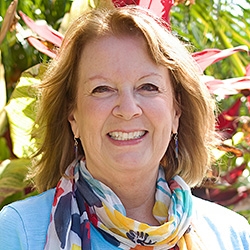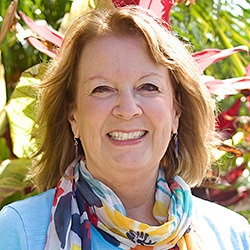

Search Results: love
-
Trainer Tip: Censoring oneself to maintain peace may seem easier, but it actually requires significant energy. You can free up that energy you use to deny and stuff down your feelings, needs, desires, truth, and figure out and adjust to what others want. Embracing authenticity and expressing true feelings and needs can lead to a liberating experience, unlocking joy, love, and endless possibilities.
-
Develop resilience and stay present amidst challenge by tapping into the living energy of needs.
-
We can use anger as an important signal to let us know that we perceive a threat to a universal need or value, directing our attention to something so that we can take effective action, and avoid harmful thought patterns. For example, instead of dwelling on a "should," focus on addressing unmet needs through boundaries and effective communication.
-
Trainer Tip: Notice if something within your agency will bring you the serenity you want. If not, then notice the needs you are trying to meet by wanting to take that action. Then then choose another action that's more likely to have the desired effect.
-
Welcome to June. It’s the beginning of summer in my area of the world and I usually find myself moving at a slower pace; spending more time outdoors and with friends, more time reading and gardening. I really enjoy the beginning of summer especially because the sun brings just enough heat to feel good, but not so hot to be uncomfortable.
-
Explore how social systems shape personal experience, and how nonviolence can support healing.
-
Awaken your soul force and live from compassion and clarity while grounded in human needs.
-
- Focus on living from the inside out
- Bring a field of inner kindness to your inner distress
- Attend to your inner experience with compassion
- Cultivate an inner spaciousness of freedom
-
Yoram Mosenzon shares that the role of a mediator is often misconceived as solving conflicts, which can create stress and exacerbate the conflict. Instead, the true essence of mediation is about remaining untriggered, understanding the pain of the conflicting parties, and facilitating communication.
-
Dear readers,
I’m writing this letter from Bangalore, India. The monsoons have begun in the South of India after a long, dry summer and we’re grateful for the rain.
-
Observation is the awareness of our sensory perceptions and thoughts, separate from evaluations and judgments. Feeling involves bodily sensations and emotions, distinct from "faux feelings" that mix thought and emotion. Needs encompass universal human requirements for survival and wellness, while thoughts and evaluations express needs. Requests are rooted in connection and invite true willingness, rather than demanding compliance.
-
- Discover what is yours to do in response to our growing global crises
- Weave nonviolence more deeply into how you live and lead
- Receive ongoing support within and beyond the course in how to be effective and alive while doing what’s yours to do
- Increase your capacity to face and mourn current reality as a source of greater choice and energy
- Be a part of transforming the legacy of scarcity, separation, and powerlessness into a livable future
-
Dear friends,
I greatly enjoyed my annual New Year’s Peace Meditation yesterday. It always brings together NVC enthusiasts from across the world and is one of my favorite traditions for welcoming the New Year!
How was 2024 for you? For me, it was a bumpy ride. There were moments of joy spending time with our 3-year-old grandson, mine and Kim’s first international trip together (a bonafide vacation that was void of work), and precious time with family and friends. There was also heartbreak...
-
Distinguishing between needs and strategies to meet needs is crucial for solving conflict. For example, the need for peace can be met through various strategies beyond solitude or gratitude. Similarly, sex is a strategy. Sexual expression is the need behind it, and can be met in various ways to meet that need without having sex itself. Such flexibility can foster creativity and deeper connection, enhancing relationships.
-
In relationships, the desire for space can conflict with the need for intimacy. This conflict arises from different strategies to meet similar needs. By identifying specific needs behind the request for space and understanding the other person’s needs for closeness, both of you can negotiate and collaborate. Repeated conflicts may indicate the need for personal healing, which you’ll need to address individually.
-
CNVC trainer Yoram Mosenzon shares how expressing specific and authentic appreciation can deepen connection in intimate relationships. He emphasizes the importance of making clear observations without judgment and connecting with the feelings and needs that arise from meaningful gestures.
-
- Learn the essentials of NVC from its founder, Dr. Marshall Rosenberg
- Discover how to connect with others with empathy, integrity, and peace
- Understand the origins of NVC and how to apply it within yourself and in your life
- Experience how empathy supports healing in your most intimate relationships— and in the world at large!
-
- Hear from four respected NVC trainers offering heartfelt insights and real-life strategies
- Connect with others seeking compassion, courage, and meaningful action
- Attend as a gift — pay what you can to support NVC Academy
- Discover simple, practical tools to stay grounded, clear, and empowered—no matter what’s happening in the world!
-
Anger and resentment can signal unmet needs. Through mourning those needs and practicing self-empathy, we may let go of blame, embrace reality, and reclaim responsibility for fulfilling our own needs. This process may lead to emotional transformation through conscious reflection, and a new outlook.
-
- Discover how to translate NVC into your natural, authentic voice
- Embody your values through tone, presence, and nervous system attunement
- Learn the art of repair and returning to love when things go off track
- Finally, be able to drop the script and trust your internal compass in the moment!

Quick Links
Subscription Preferences
Stay In Touch!
Looking for ways to keep up with NVC Academy news, get special offers, free resources, or words of inspiration? Here are five ways to stay engaged:















